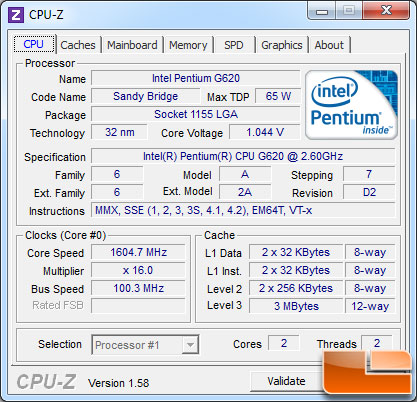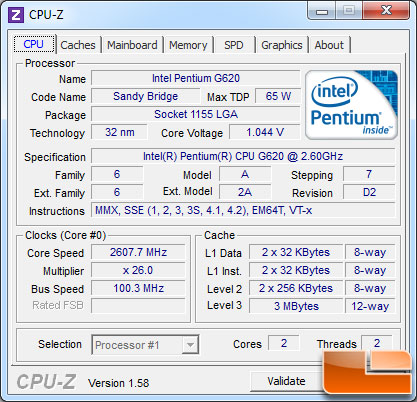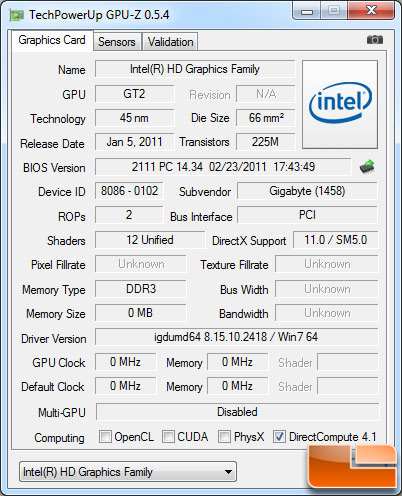Intel Pentium G620 Sandy Bridge 2.6GHz CPU Review
CPU-Z, GPU-Z and Windows Index Score

Here is a look at the Intel Pentium G620 processor sitting at an idle state on the desktop of our Windows 7 64-bit test system. Notice that the processor is only running at 1.6 GHz thanks to Intel’s SpeedStep and low power state technologies. This is key as it will have lower idle power consumption and generate less heat. The base clock of the processor is 100MHz and our Gigabyte Z68 motherboard is running the base clock at 100.3MHz, which isn’t too far off from default. Notice that the Pentium G620 has 3MB of shared L3 cache and that each core has 64KB of dedicated L1 cache and 512KB of dedicated L2 cache.

During regular use the Intel Pentium G620 can jump up to the rated
clock frequency of 2.60GHz (as shown above) and it will not go any higher than this as Intel did not enable turbo mode on the Pentium series.

The GPU identification utility GPU-Z does not properly read the Intel Pentium G620, but we know it is running Intel HD Graphics 2000. The GPU has a clock speed of 850MHz that can dynamically rise to 1100MHz when GPU power is needed. We are running Intel VGA driver version 8.15.10.2418 on our test system

We get people asking about the Windows Experience Index Score all the time, so we thought we’d include it. According to Windows 7 the lowest performing component on the system was the graphics, which would be the Intel HD Graphics 2000, as it had a subscore of 5.2 and that is the base score for the entire system. It will be interesting to see if that holds true in the benchmarks.

Comments are closed.